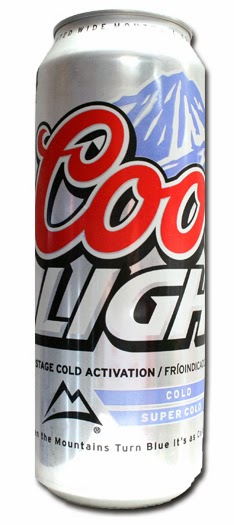The gluten-free food trend has certainly been one of the most significant forces to affect the food industry in a long time. The trend has extended to adult drinks as reported this weekend in Wall Street Journal. There is considerable debate and uncertainty as to the underlying science behind it. I’ve had some training in food science and nutritional analysis of grain-based products as an animal science undergraduate and an ameteur beer brewer in my 20s. I’m aware and pretty well read on the issues in of our modern era grain products, possible impact of genetic modification of modern grains and the food production chemical debate but I not informed enough to have formed a strong opinion. The discussion can get complicated in a hurry and I am simply going to sidestep the entire issue here in order to discuss only my personal observations.
More important here is that I’ve noticed significant adverse physical effects from drinking even modest amounts of some beers over my entire adult life. I am not alone. There are dozens of reliable sources of similar observations. The effect seems to have gotten worse in recent years where I can experience bloating or difficulty breathing at night after just one beer. As a result, I’ve periodically casually “tested” certain beers for their impact.
Simply put as a practical matter for me, I simply want a beer that doesn’t trigger bloating or nasal reaction after drinking one or two cans or bottles. Additionally important at middle age is a beer that doesn’t pack on too many extra calories. Finally, of course, the taste of the beer has to make it worthwhile.
This summer I’ve had pretty good results drinking almost exclusively Coors Light and Corona Light. I’ve probably had around 20 cans or bottles of each with significantly less noticeable after-effects than in past seasons drinking other beers. Then today I stumbled across this blog that confirms my suspicions: other people are noticing the same thing and that it may be tied to the ingredients in the beer. Read the blog comments for almost universal confirming opinions of others. For those unfamiliar with food testing, the reported result “under 10 ppm” can roughly be translated in this context as “gluten grain product free”. These two beers are the only ones, to my knowledge, that are widely available within this classification. While I’ve noticed a rush of small crowdfunded offerings worldwide from brewers intending to expand in this market, microbrewers do not significantly impact the larger gluten free beer market at this point.*
So the fact is that we may not understand the science behind it, the shared observation is that there may be different health impact of different beers observed by groups of people who pay attention to the issue.
*As a side issue, the reason I visited this topic now is that microbrewers have been one of the most successful early adapters of small business crowdfunding worldwide and I am following these offering to learn more about what works and what doesn’t in this emerging field to advice others.



Leave a Reply